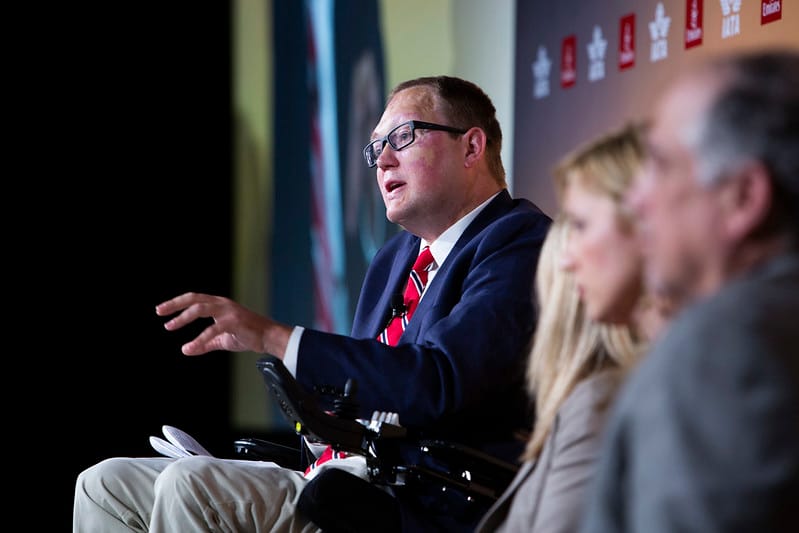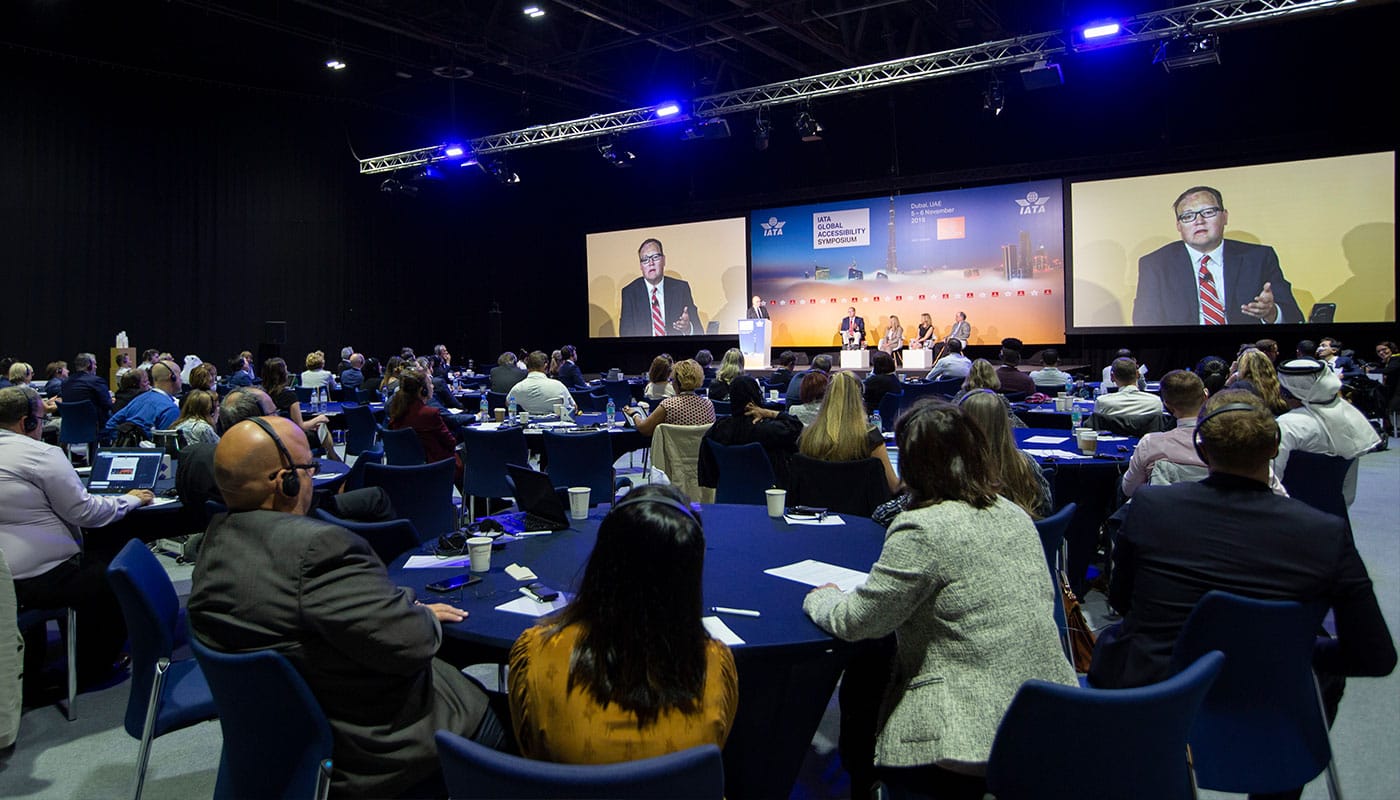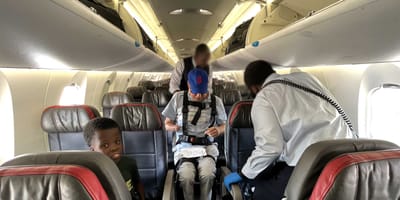The International Air Transport Association is a trade association representing 296 member airlines around the world. The organization describes its mission as “advocating for the interests of airlines across the globe,” and it plays a major role in the development of airline policies, procedures and aviation standards.
From November 5-6, 2019, IATA held its first ever Global Accessibility Symposium in Dubai. The event provided a “platform to debate with stakeholders and passengers how air transport can be the leader of a truly accessible and inclusive industry for passengers with disabilities.” The association invited me to speak on a panel entitled, “I Have a Reduced Mobility, and These Are My Needs.” These are my top 5 reflections from the symposium.
1. IATA wants to be an ally to the disability community.
The demand for accessible air travel is increasing, but airlines are often unprepared to deliver the disability assistance services necessary. IATA recognizes that the status quo is unacceptable, and I believe that the team behind the symposium is focused on leading (or dragging) airlines in the right direction.

Because IATA represents the interests of airlines rather than passengers, I was surprised to find the organization willing to admit that significant work must be done. It was refreshing to hear, and I am encouraged.
2. Wheelchair handling is a key action item for IATA.
Data from the U.S. Department of Transportation shows that U.S. airlines are damaging nearly 1,000 wheelchairs each month. Although data from other countries is not publicly available, IATA has recognized that the mishandling of wheelchairs is a significant problem facing the industry. It’s a costly one too — it inconveniences and immobilizes disabled travelers, and eats into the airline’s bottom line.
IATA is expected to list the proper handling of wheelchairs among its 2020 priorities.
3. Better service is coming to those with invisible disabilities.
People with invisible disabilities have historically been left out of the conversation, but that is changing within the travel industry.

The Global Accessibility Symposium placed significant focus on these communities, with reports of many positive developments. Sarah Marchant, Customer Relations Manager at London’s Heathrow Airport, spoke about her previous work in making London’s Gatwick Airport one of Europe’s most accessible for disabled people, including those with invisible ones.
4. The industry has a disability representation problem.

My panel was titled “I Have Reduced Mobility, and These Are My Needs,” and included the following panelists in addition to myself:
- Rosalie Crabbe, Manager of Accessible Programs & Regulatory Compliance, United Airlines
- Dana Folsom, Manager of Disability Programs, Delta Air Lines
- Eric Lipp, Founder, Open Doors Organization
- Roberto Castiglioni, Director of Reduced Mobility Rights (Moderator)
Eric Lipp and I are both strong advocates for greater accessibility in air travel, and brought up important points during the discussion. But I felt as though our panel pitted disabled passenger needs against airlines, who responded in defense of their inaction.
IATA assembled a compelling symposium program, but the industry as a whole must do more to ensure disability representation. Accessibility managers would be more effective (and relatable) with a lived experience of disability, and airlines must act on recommendations offered by disabled team members, customers and advocates.
5. Airlines are not interested in urgency.
Nothing I said in Dubai was new. My thoughts on the issues facing disabled air travelers have been well documented on this blog, and are read worldwide by members of the industry.

During my presentation, I stated the following — that the failures of airlines to fulfill their responsibilities to disabled passengers amount to civil rights violations in many jurisdictions, that airlines have elected to maintain the status quo and that the issues facing disabled passengers should be addressed with great urgency.
But few of the carriers I spoke to were interested in urgent action. I kept hearing phrases like “taking small steps,” “one step at a time,” and “long-term goal.” That is not acceptable to passengers who for decades have expected airlines to follow the clear requirements laid out in documents like the Air Carrier Access Act of the United States.
I hope IATA will press its member airlines to address disability service failures with urgency. It’s important — without action, air travel will continue to be the most dreaded and feared form of transportation among members of the disability community.
Final Thoughts
Given that this was IATA’s first disability symposium, I was impressed with the way it came together. Many important points of view were expressed, and I believe that the industry is better for it. Everyone left with increased understanding and new ideas that I hope will improve the passenger experience. I look forward to being involved in the 2020 event, and hope to see more airlines join the discussion.
Featured images courtesy IATA.















